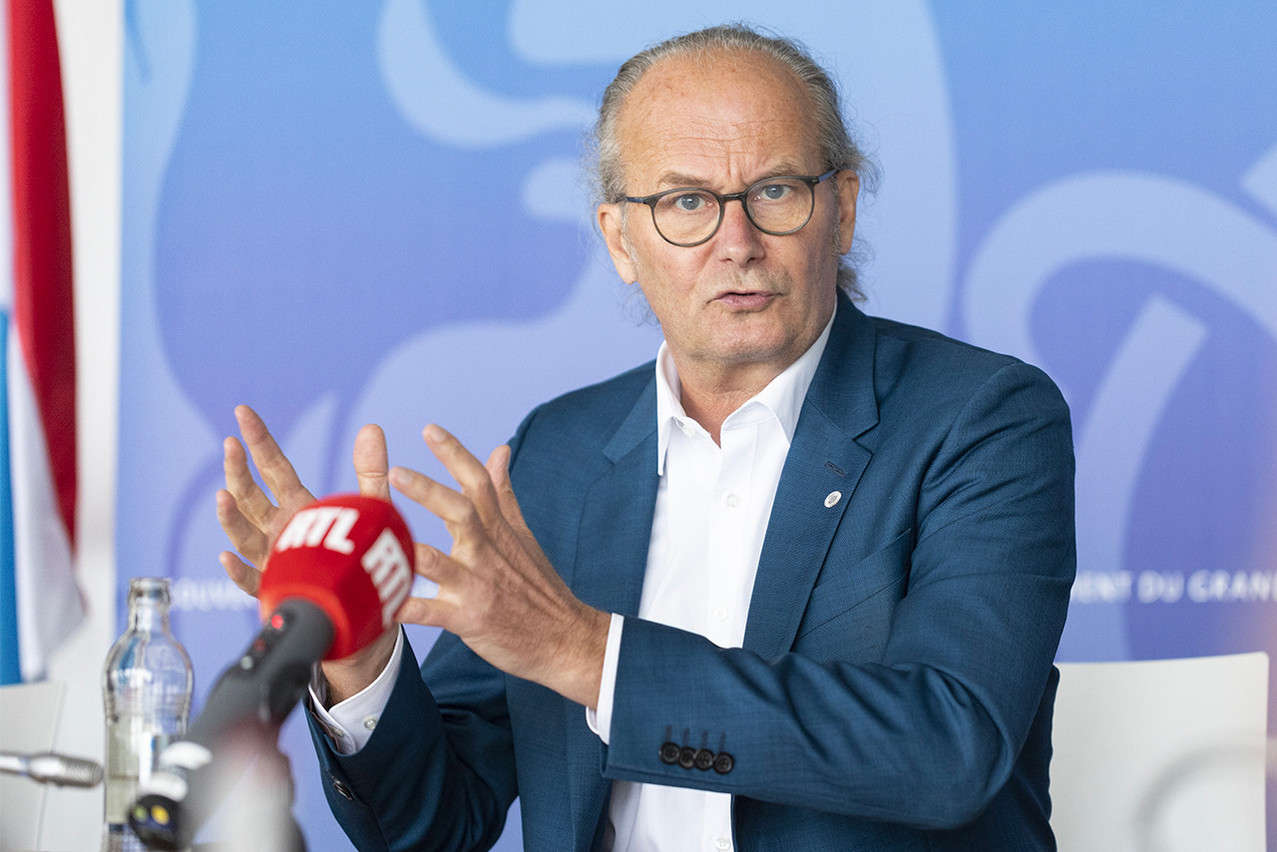In the event of a serious gas supply crisis, who will be affected first? A hierarchy has been set up by the ministry of energy, which presented its new emergency plan for the security of natural gas supply on Wednesday.
Four categories of customers are thus differentiated, the fourth category, N4, set "to be offloaded first", until N1, which is to be offloaded as a very last resort. The most protected are residential customers and essential services. "Citizens will not be disconnected, nor hospitals, nor nursing homes, nor retirement homes," explained (Déi Gréng). "We have also placed schools in this category of those that will be disconnected at the very last moment, and hopefully never."
For the rest, in the event of a serious gas supply crisis, "temperatures will have to be reduced, such as in public buildings, or even closed, such as heated outdoor swimming pools," the minister explains.
Industry is also affected. A model has been found, in consultation with the ministry. "The 60 largest gas consumers will all have to reduce their consumption by 15% and will be able to exchange gas with each other: if one company reduces its consumption by 50%, it can give these unused quantities of gas to another company that is having great difficulty reducing its consumption," explains Turmes. A model that avoids having to determine who is the priority industrialist in a crisis situation. "I didn't want this discussion, I'm very happy that we were able to reach an agreement," says Turmes.
Three alert levels
The different categories of customers will also be affected differently according to three levels of crisis: early warning, warning and emergency. To determine the alert level, the ministry will monitor various indicators. "If the network operators have, for example, information that there might be a supply interruption, the early warning is triggered," the ministry explains. "If there is specific information of a supply problem, the alert is triggered. And if the supply problem is current, present, it is an emergency."
What happens if a customer refuses to comply and has to stop using gas in the event of a crisis? "There is always the possibility of imposing the measure," by closing the valves, remotely if technically possible, or manually. But of course the idea is that everyone should cooperate. Hence the upstream discussions, which began in February 2022, with business representatives, notably the UEL and the Fedil, to prepare this emergency plan "in close consultation" with them.
A “well prepared" winter
At present, Luxembourg's security of supply is assured and none of these three national crisis levels has been activated, the ministry confirmed. The coming winter is "well prepared", says Turmes. This is thanks to two decisions: the European obligation to fill all gas stocks--while "expropriating" Gazprom, which controlled 50% of gas stocks in Europe. And secondly, there is the collective reduction of gas consumption by 15%, on a voluntary basis. "For the moment, in Europe, we are following the -15%", according to the minister.
Luxembourg is currently meeting its target of a 15% reduction in consumption. In August, the reduction and, in September, the reduction corresponded to about 26% compared to the reference years.
Gas purchasing platform
A third "relevant" instrument should be added: a European gas purchasing platform. "This proposal for a European law has been on the table since Tuesday and I am optimistic that within three or four weeks we will be able to reach an agreement," hopes Turmes, for whom this will facilitate the filling of gas stocks.
The minister therefore says he is "confident" for the coming winter, but calls for "solidarity": "We have made a major budgetary effort of several hundred millions to fill the gas stocks. In return, we must consume responsibly. The less gas is consumed in buildings, the more it reduces the risk that one day industrial production in Luxembourg will have to be reduced,” he concludes.
This story was first published in French on . It has been translated and edited for Delano.
